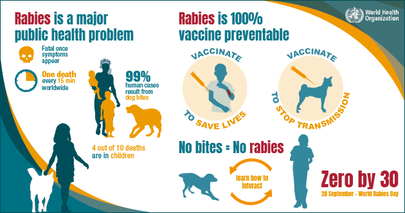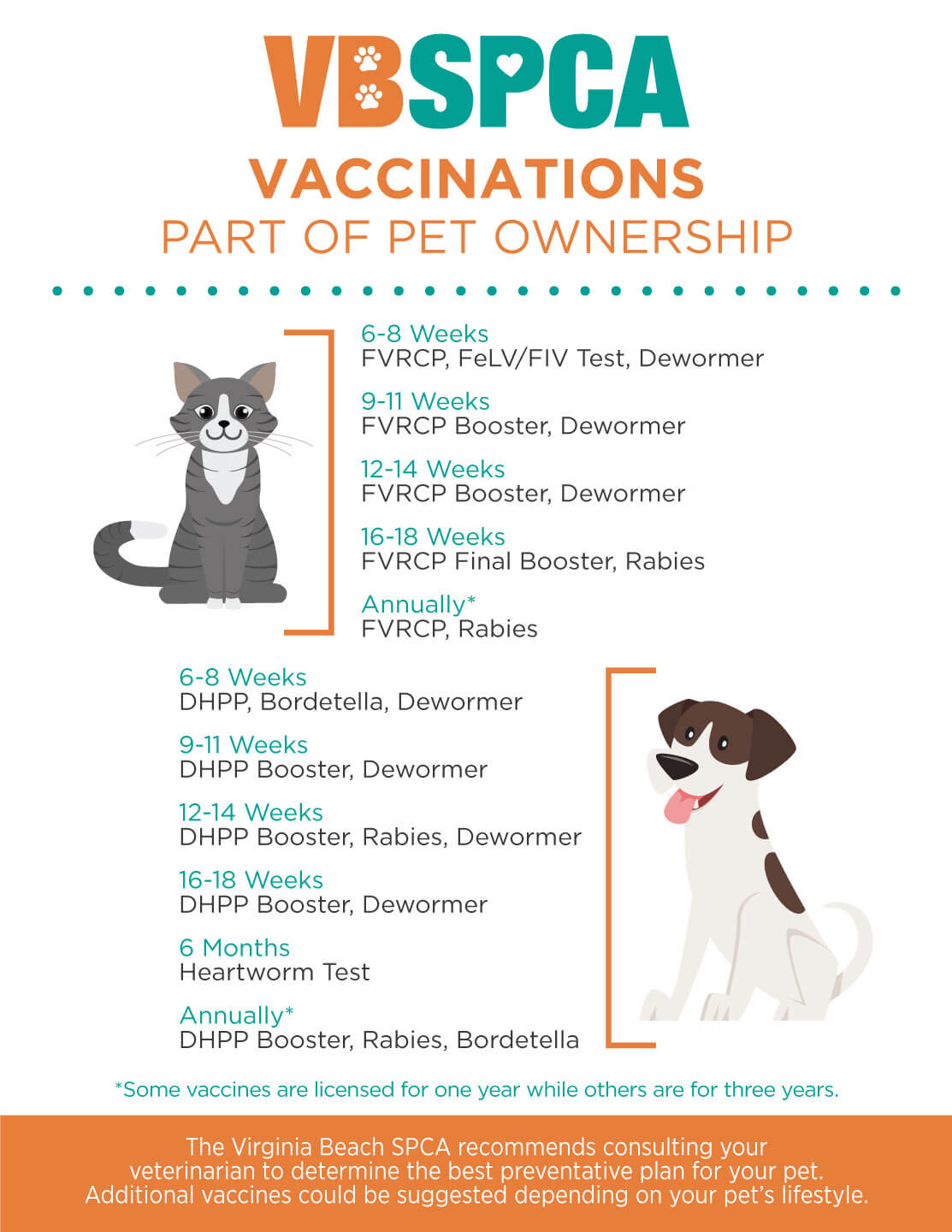Your dog needs a rabies shot every 1 to 3 years, as recommended by your veterinarian. Rabies vaccinations are essential to protect your pet from this dangerous viral disease that can be transmitted to humans.
Owning a dog comes with many responsibilities, including ensuring their proper health care. One important aspect of that is vaccinating your pet against rabies. As a responsible pet owner, it is crucial to understand how often your dog needs a rabies shot in order to keep them healthy and safe.
We will discuss the frequency of rabies vaccinations, the importance of staying current with your dog’s shots, and the potential risks associated with not keeping up with the recommended schedule. Understanding the necessity and timing of rabies vaccinations can help you provide the best care for your beloved canine companion.

Credit: www.tendertouchvethosp.com
Importance Of Rabies Vaccination
Regular rabies vaccinations are vital to protect your dog’s health. Consult your veterinarian to determine the frequency your dog needs a rabies shot for optimal protection against this deadly virus.
Rabies is a deadly disease that affects both humans and animals. It is caused by a virus that attacks the nervous system and is transmitted through the bite of an infected animal. Vaccination plays a crucial role in preventing the spread of rabies and keeping our pets and communities safe. As responsible pet owners, it is essential to understand the importance of rabies vaccination and ensure that our furry friends receive their shots on time.
Preventing The Spread Of Rabies
Vaccinating your dog against rabies is the most effective way to prevent the spread of this deadly disease. Rabies can be transmitted through the saliva of an infected animal, and once symptoms appear, it is almost always fatal. By keeping your dog up to date with their rabies shots, you not only protect them from contracting the disease but also help create a barrier against its spread in your community.
Rabies vaccines stimulate the immune system to produce antibodies that fight against the virus. In case your dog comes into contact with a rabid animal, these antibodies will neutralize the virus, preventing it from infecting your canine companion. This not only safeguards your dog’s health but also reduces the chances of transmitting the disease to humans and other animals.
Legal Requirements For Rabies Vaccination
In many jurisdictions, including the United States, rabies vaccination is a legal requirement for dogs. This is because rabies poses a significant public health risk, and mandatory vaccination helps protect the community as a whole. Failure to comply with these laws may result in fines or other legal penalties.
It is important to note that the age at which dogs should receive their first rabies vaccination can vary depending on local regulations. In general, puppies receive their initial shot between 12 to 16 weeks of age, followed by booster shots at regular intervals. Additionally, some areas may have specific requirements for the frequency of rabies vaccination, so make sure to check with your local veterinary authority to stay compliant.
By adhering to these legal requirements and ensuring your dog’s rabies vaccination is up to date, you not only fulfill your responsibilities as a pet owner but also contribute to the overall health and safety of your community.
Initial Rabies Vaccination Schedule
When it comes to the initial rabies vaccination schedule for your dog, it’s essential to follow the recommended guidelines to ensure their long-term health and safety. The initial vaccination series and booster shots play a crucial role in protecting your furry friend from this potentially fatal virus.
Puppy Vaccination Series
For puppies, the initial rabies vaccination is typically administered when they are between 12 and 16 weeks of age. This initial dose is crucial in building their immunity to the rabies virus, providing them with essential protection during their early stages of life.
Booster Shots
After the initial vaccination, booster shots are necessary to maintain your dog’s immunity against rabies. Depending on the specific vaccine used and local regulations, booster shots are usually required every 1 to 3 years.
Determining The Frequency Of Rabies Shots
Determining the frequency of rabies shots for your dog is crucial for their health and safety. It is generally recommended to administer a rabies shot every 1 to 3 years, depending on the specific laws and regulations in your area.
Consulting with your veterinarian is essential to ensure your furry friend receives the appropriate vaccinations.
Duration Of Immunity
Determining the frequency of rabies shots for your canine companion involves understanding the duration of immunity provided by the vaccine. Rabies vaccinations generally confer immunity for a year or three years, depending on the type of vaccine administered. It is imperative to adhere to the recommended schedule to ensure your pet’s ongoing protection.
Local Rabies Laws And Regulations
Local rabies laws and regulations play a crucial role in determining how often your dog needs a rabies shot. Each state or locality may have specific requirements regarding the frequency of vaccinations. It’s essential to consult with your veterinarian to stay compliant with the laws and ensure your furry friend’s safety and legal standing.
:strip_icc()/how-long-are-rabies-shots-good-3385625_FINAL-b3b90b78675e4a9ca4102b405fecf74c.jpg)
Credit: www.thesprucepets.com
Factors To Consider
When it comes to keeping our furry friends healthy, one question that often arises is – how often does my dog need a rabies shot? Several factors need to be considered to determine the frequency of rabies vaccinations for your canine companion.
Age And Health Of The Dog
The age and health of your dog play a crucial role in determining how often they should receive a rabies shot. As puppies, dogs typically receive their initial rabies vaccination around 12-16 weeks of age. This is followed by a booster shot within one year. After the initial vaccinations, adult dogs can typically undergo a three-year vaccination protocol, as long as their health remains optimal.
However, older dogs or those with certain health conditions may require more frequent vaccinations. If your dog has a compromised immune system or a medical condition that affects their ability to fight off diseases, your veterinarian may recommend more frequent rabies shots to ensure their protection against this deadly virus.
Exposure Risk And Lifestyle
The exposure risk and lifestyle of your dog are also important factors to consider when determining the frequency of rabies vaccinations. Dogs that have a higher likelihood of encountering wildlife or other potentially rabid animals may need more frequent shots to mitigate the risk.
If your dog has access to the outdoors and regularly encounters wildlife, such as raccoons, bats, or skunks, the risk of exposure to the rabies virus increases. Similarly, if your dog frequently interacts with other dogs or animals of unknown vaccination status, it’s crucial to ensure their rabies shots are up-to-date. Exposure to the rabies virus is a serious threat, and regular vaccinations are the best defense against this deadly disease.
Your veterinarian can evaluate your dog’s individual risk factors and make recommendations based on their lifestyle, exposure risk, and overall health.
In conclusion, while the frequency of rabies vaccinations for dogs can vary, it is essential to prioritize their health and well-being by following the guidelines provided by your veterinarian. Remember that rabies is a life-threatening disease, and prevention through vaccination is vital. By considering the age and health of your dog, as well as their lifestyle and exposure risk, you can ensure that your furry companion remains protected against this dangerous virus.
Consulting With A Veterinarian
When it comes to the health and well-being of your furry friend, it is always important to consult with a veterinarian. They are the experts who will guide you in making informed decisions regarding your dog’s medical needs, including their vaccination schedule. Your veterinarian will take into consideration various factors such as your dog’s age, lifestyle, and local regulations to create an individualized vaccination plan.
Individualized Vaccination Plan
An individualized vaccination plan is essential for every dog as it takes into account their unique requirements. Your veterinarian will assess your dog’s lifestyle, risk factors, and local regulations to determine the most suitable vaccination schedule. Factors such as age, breed, and overall health will also be considered as they can influence the effectiveness and duration of immunity provided by vaccines. By tailoring the vaccination plan, your veterinarian ensures that your dog receives the necessary protection while minimizing the risks associated with over-vaccination.
Vaccine Recommendations And Options
Vaccine recommendations and options vary based on several factors, including your dog’s overall health and the prevalence of certain diseases in your area. Certain vaccines, like the rabies vaccine, are legally required in many regions to ensure public safety. However, other vaccines may be recommended based on your dog’s lifestyle and exposure risks. Your veterinarian will discuss the available vaccine options with you, explaining the benefits and potential side effects of each. They will help you make an informed decision about which vaccines are necessary and appropriate for your dog.
It is important to note that vaccines are not one-size-fits-all and the frequency of vaccination can vary for different diseases. Some vaccines provide long-lasting immunity, while others may require boosters at specific intervals. Your veterinarian will create a vaccination schedule that aligns with the specific needs of your dog, ensuring they receive the right vaccines at the right time.
A Trusted Resource For Health Guidance
Your veterinarian is an invaluable source of information and guidance when it comes to your dog’s health. They stay up to date with the latest vaccine research and industry recommendations, enabling them to provide you with accurate and relevant information. By consulting with a veterinarian, you can ensure that your dog receives the appropriate vaccinations to maintain their health and protect them from preventable diseases.
Remember, regular veterinary visits for check-ups and vaccine updates are crucial for your dog’s overall well-being. By working closely with your veterinarian, you can ensure that your furry companion stays happy and healthy throughout their life.

Credit: vbspca.com
Frequently Asked Questions Of How Often Does My Dog Need A Rabies Shot
How Often Should My Dog Get A Rabies Shot?
Dogs typically receive their first rabies shot at 12-16 weeks of age, followed by a booster shot within one year. After that, most states require a rabies shot every 1-3 years. It’s essential to check your local regulations and consult with your veterinarian for a specific vaccination schedule for your furry friend.
Why Is It Necessary For My Dog To Get A Rabies Shot?
Rabies is a deadly virus that can be transmitted to humans through animal bites. A rabies shot provides crucial protection for both your dog’s well-being and public health. It ensures that your four-legged companion has a strong defense against potential exposure to rabies and prevents the spread of the disease.
What Are The Potential Side Effects Of A Rabies Shot For My Dog?
While rare, mild side effects of a rabies shot can include temporary lethargy, soreness at the injection site, and a slight increase in body temperature. Serious side effects are extremely uncommon but may include allergic reactions. It’s essential to monitor your dog after receiving a vaccination and consult with your veterinarian if you notice any concerning symptoms.
Conclusion
To keep your furry friend protected from rabies, it is crucial to ensure they receive regular vaccinations. The frequency of these shots may vary depending on several factors such as your dog’s age, lifestyle, and local regulations. Consulting with your veterinarian is the best way to determine the appropriate schedule for your pet’s rabies vaccinations.
Remember, keeping up with these shots not only safeguards your dog’s health but also contributes to the overall well-being of your community. Stay current on vaccinations and enjoy many healthy years with your four-legged companion.



